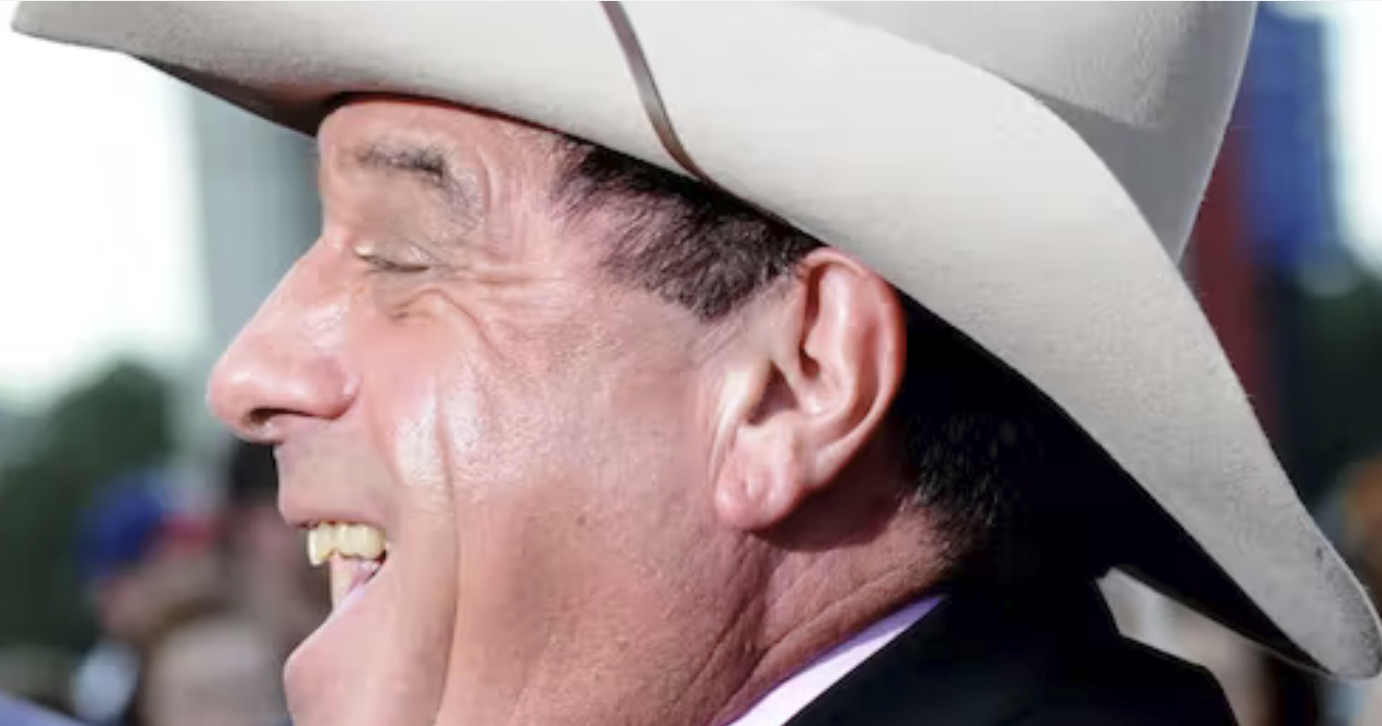How the 'artfully incoherent' presenter changed Australian music – and Australian music journalism
- Written by Liz Giuffre, Senior Lecturer in Communication, University of Technology Sydney

Ian Alexander “Molly” Meldrum is 80 on January 29 2023.
The Australian music industry would not be where it is today without his work as a talent scout, DJ, record producer, journalist, broadcaster and professional fan.
His legacy has been acknowledged by the ARIAs, APRA, the Logies, an Order of Australia and even a mini-series[1].
Just a couple of weeks ago, Meldrum made headlines again for an appearance at Elton John’s farewell concert in Melbourne when he “mooned” the crowd[2] in a playful display of rock and roll rebellion. He later apologised[3] to the audience and old friend Elton, keen to make sure no one else was blamed.
It was an irreverence typical of Meldrum’s long career. But his legacy is not just in the musical acts he supported. It is also in the taste makers who followed in his footsteps.
Read more: Countdown - just nostalgia, or still breaking new ground?[4]
‘Artfully incoherent’
A journalist at pioneering music magazine Go-Set, a presenter and record producer, Meldrum became a household name with the ABC TV music show Countdown (1974-87). Countdown was a weekly touchstone for the industry and fans, promoting local acts alongside the best in the world.
Meldrum’s approach to interviewing and commentary is legendary. ABC historian Ken Inglis called his interviewing style “artfully incoherent”.
Importantly, his charm put artists and fans at ease.
Meldrum is not a slick player, but a fan. This fandom is felt so deeply that, at times, he became overwhelmed.
One of Meldrum’s most famous interviews was in 1977 when the then Prince Of Wales appeared on Countdown to launch a charity record and event. The presenter became increasingly flustered.
Even now, watching back, it’s hard not to side with Meldrum rather than his famous guest. Pomp, ceremony and hierarchy really didn’t make sense in this rock and pop oasis.
In another interview, Meldrum spoke to David Bowie on a tennis court. Both men casually talked and smoked (it was the ‘70s!), talking seriously about the work but not much else.
As Meldrum handed Bowie a tennis racket to demonstrate how the iconic track, Fame[5] (with John Lennon) was born, the Starman was given space to be hilariously human.
When meeting a sedate Stevie Nicks, Meldrum met her on her level.
Nicks told Meldrum she was only happy “sometimes”, and rather than probing, he just listened. When Meldrum asked about the dog Nicks had in her lap, she opened up:
I got her way before I had any money, I didn’t have near enough money to buy her […] She’s one of the things I’ve had to give up for Fleetwood Mac, because you’re not home.
Meldrum approached this, and all his guests, with humanity. This is how his insights into the reality of rock royalty are effortlessly uncovered.
Read more: How will 'Molly' help us remember Australian culture?[6]
New taste makers
A country boy who came to the city, Meldrum studied music and the growing local industry much more attentively than his law degree. He passionately supported (and continues to support) Australian popular music – and Australian music fans.
He speaks a love language for music that musicians and fans share, and a language which has continued in other presenters.
Following in Meldrum’s footsteps we have seen distinct critical voices like Myf Warhurst, Julia Zemiro and Zan Rowe.
Each of these women have approached the music industry with charm like Meldrum, but also their own perspectives: Zemiro with a love of international influence; Warhurst with pop as a language to connect us to the everyday; Rowe with a way to connect audiences and musicians through conversations about their own processes and passions.
Our best music critics, and musicians, have embraced an unapologetic energy Meldrum made acceptable.
Meldrum is also a pioneer in the LGBTQ+ community, weathering the storms of prejudice during his early career. Today, members of the media and musical community have greater protection from the prejudice common when his career began.
The music, of course, the music
The Australian music industry would not be what it is had Molly Meldrum gone on to be a lawyer.
Through the pages of Go-Set and on Countdown he worked to promote new talent, believing in and developing acts like AC/DC, Split Enz, Paul Kelly, Do Re Mi, Australian Crawl and Kylie Minogue before the rest of the industry knew what to do with them.
He did the same for international artists. ABBA, Elton John, KISS, Madonna and many other now mega-names were first presented to Australian audiences via Meldrum’s wonderful ear.
Today, Australian music encompasses pop, dance, electro and hip hop, and artists from all walks of life. Meldrum’s willingness to listen has contributed to this, and he encouraged others to do the same.
Meldrum remains revered not just for nostalgia but as an example of what putting energy into the local scene can achieve.
Most importantly, Meldrum continues to be a music fan. He loves the mainstream, the place where the majority of the audience also resides. He has never bought into the idea of a “guilty” pleasure – if it works, it works, no music snobbery here.
His catch-cry – “do yourself a favour” – really does sum up the importance of music. It is not a luxury, but something to really keep us going.
Read more: Molly is lacking as a TV show but millions, including me, are hooked[7]
References
- ^ mini-series (theconversation.com)
- ^ “mooned” the crowd (themusic.com.au)
- ^ apologised (www.nme.com)
- ^ Countdown - just nostalgia, or still breaking new ground? (theconversation.com)
- ^ Fame (www.youtube.com)
- ^ How will 'Molly' help us remember Australian culture? (theconversation.com)
- ^ Molly is lacking as a TV show but millions, including me, are hooked (theconversation.com)

















